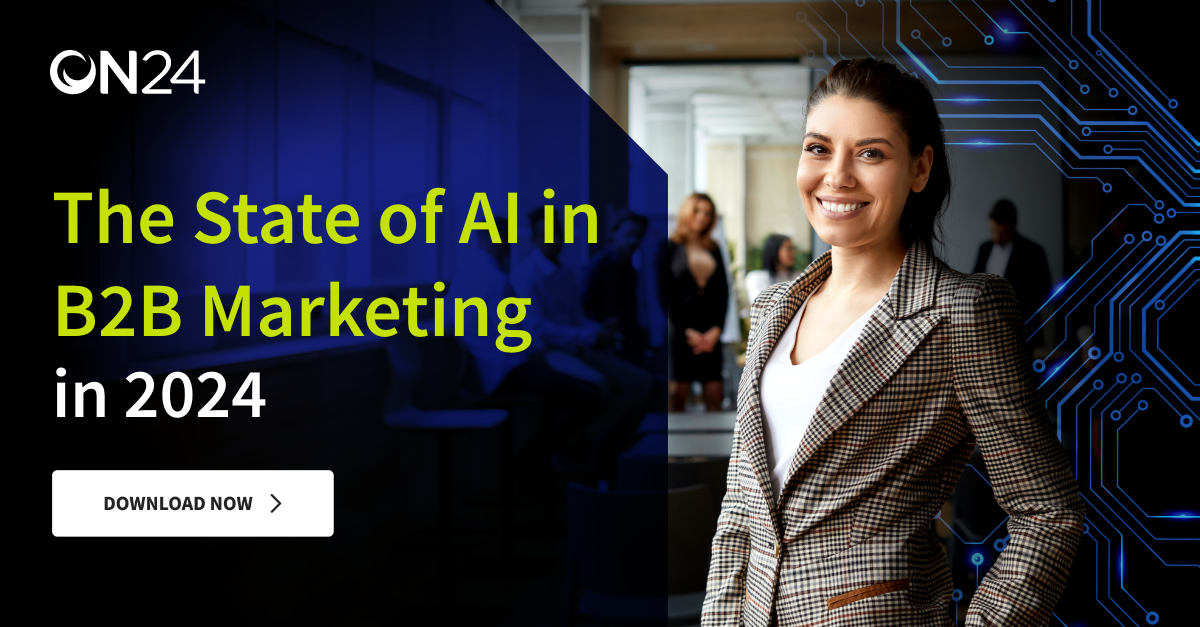The State of AI in B2B Marketing

Over the past few years, artificial intelligence (AI) in B2B marketing has exploded. While AI has long been used for behind-the-scenes data analysis, recent innovations in natural language processing (NLP) and the emergence of generative AI (GenAI) have propelled the technology into mainstream awareness.
With more businesses than ever finding marketing success through AI adoption, we wanted to know exactly how they’re using it and what they think its future role will be. To do this, we surveyed more than 500 B2B marketers, which uncovered some fascinating insights.
Our 2024 B2B Marketers AI Research Report revealed that:
-
- 85% of organizations agree that businesses using AI will see stronger revenue performance than those that don’t
- 83% of businesses believe that AI allows marketers to scale and improve personalization
- 87% of businesses agree that AI makes marketing automation more efficient and effective
- 84% of businesses agree that intelligent use of AI will improve the buyer experience
When it comes to the continued adoption of B2B AI tools, we also found that:
-
- 84% of businesses are planning to integrate more AI into their marketing strategies
- 72% of executives are asking their employees how they will be utilizing AI
The data is clear: AI marketing is revolutionizing the way businesses operate, and it’s only just getting started. Read on to find out what else our survey uncovered.
Ways organizations use AI in marketing

AI usage in marketing today
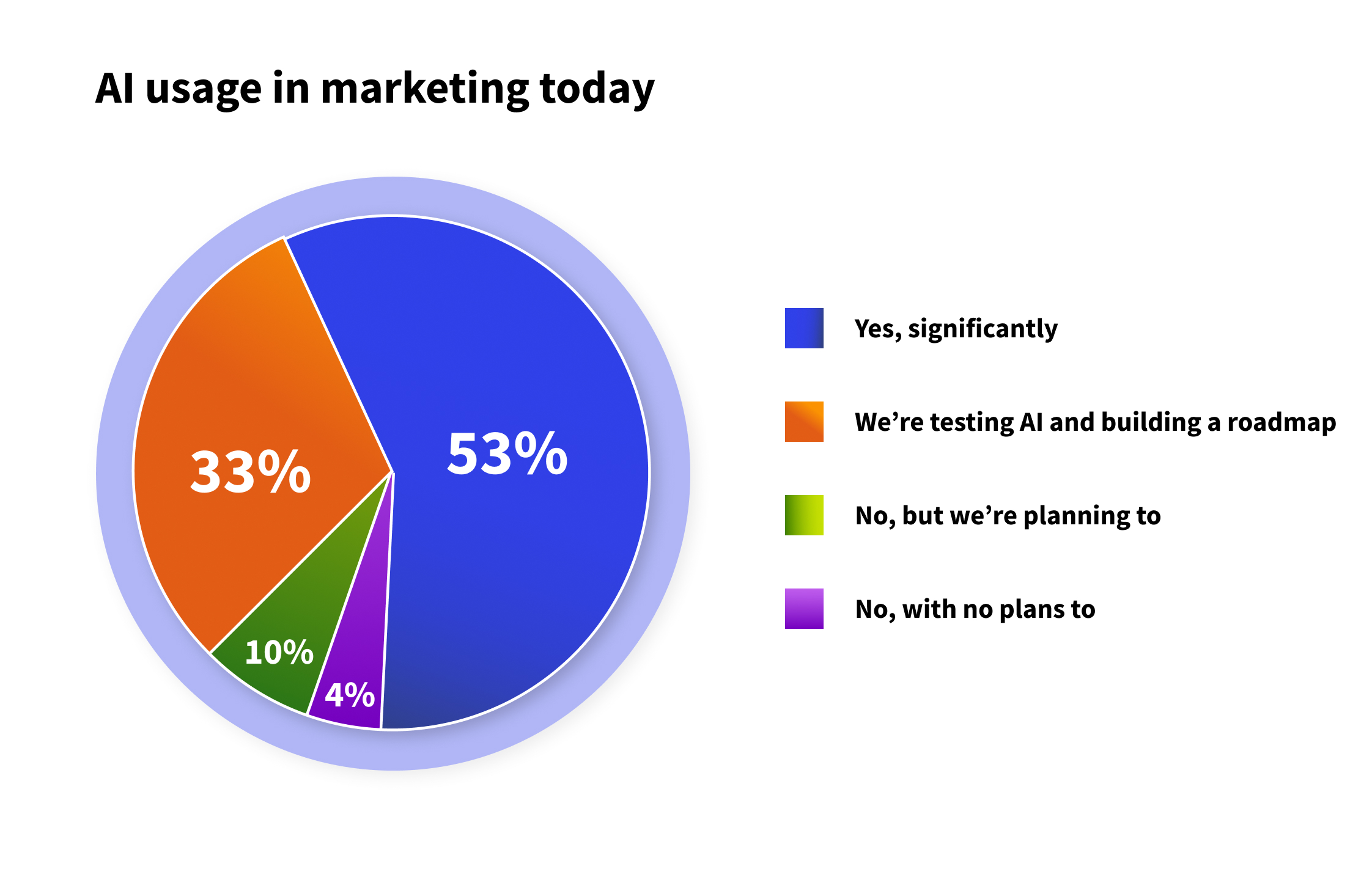
There’s a lot of talk about using AI for B2B marketing, but talk doesn’t always mean action. We were keen to find out how many marketers are using or planning to use AI — here’s what we found out.
As it turns out, the hype around AI has caught on. 53% of our survey respondents said they already used AI significantly, while 33% are currently testing AI and building an implementation roadmap. A further 10% said they’re not currently using AI but plan to do so in the future.
Astonishingly, only 4% of respondents say they have no plans to start using AI for B2B marketing. This shows that AI has, beyond doubt, permeated the increasingly competitive B2B landscape, with all kinds of businesses recognizing the opportunities it brings for innovation and efficiency.
AI usage in marketing today by industry
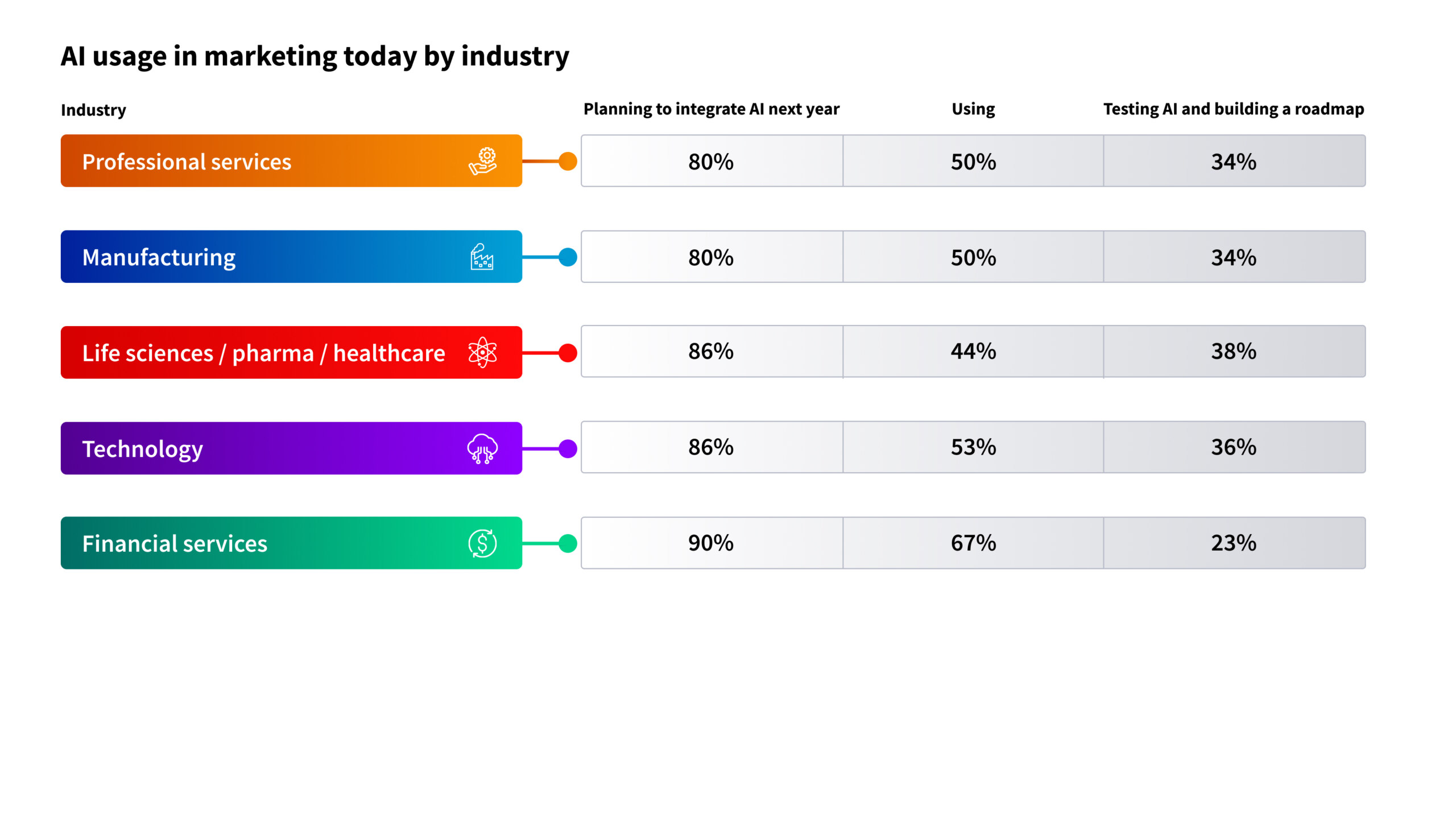
We also looked at AI usage in different industries to better understand where AI B2B marketing is most prevalent. Of the industries we surveyed, financial services came out top, with 67% of respondents saying they use it and 90% planning to integrate it next year.
53% of respondents in the technology sector are using AI, and 86% plan to use AI next year, while 36% are currently testing and building a roadmap.
50% of manufacturing and professional service respondents are using AI and 80% plan to integrate it next year.
In the life sciences, pharma, and healthcare industries, 44% of B2B marketers use AI. 38% are testing AI and building roadmaps, and 86% plan to integrate AI in 2025.
This slower but steady approach is perhaps due to greater regulations across healthcare-related industries. However, it’s interesting to note that while financial services businesses face similar regulations, the pace of AI integration has been quicker than any other industry we surveyed.
AI usage in marketing by revenue size
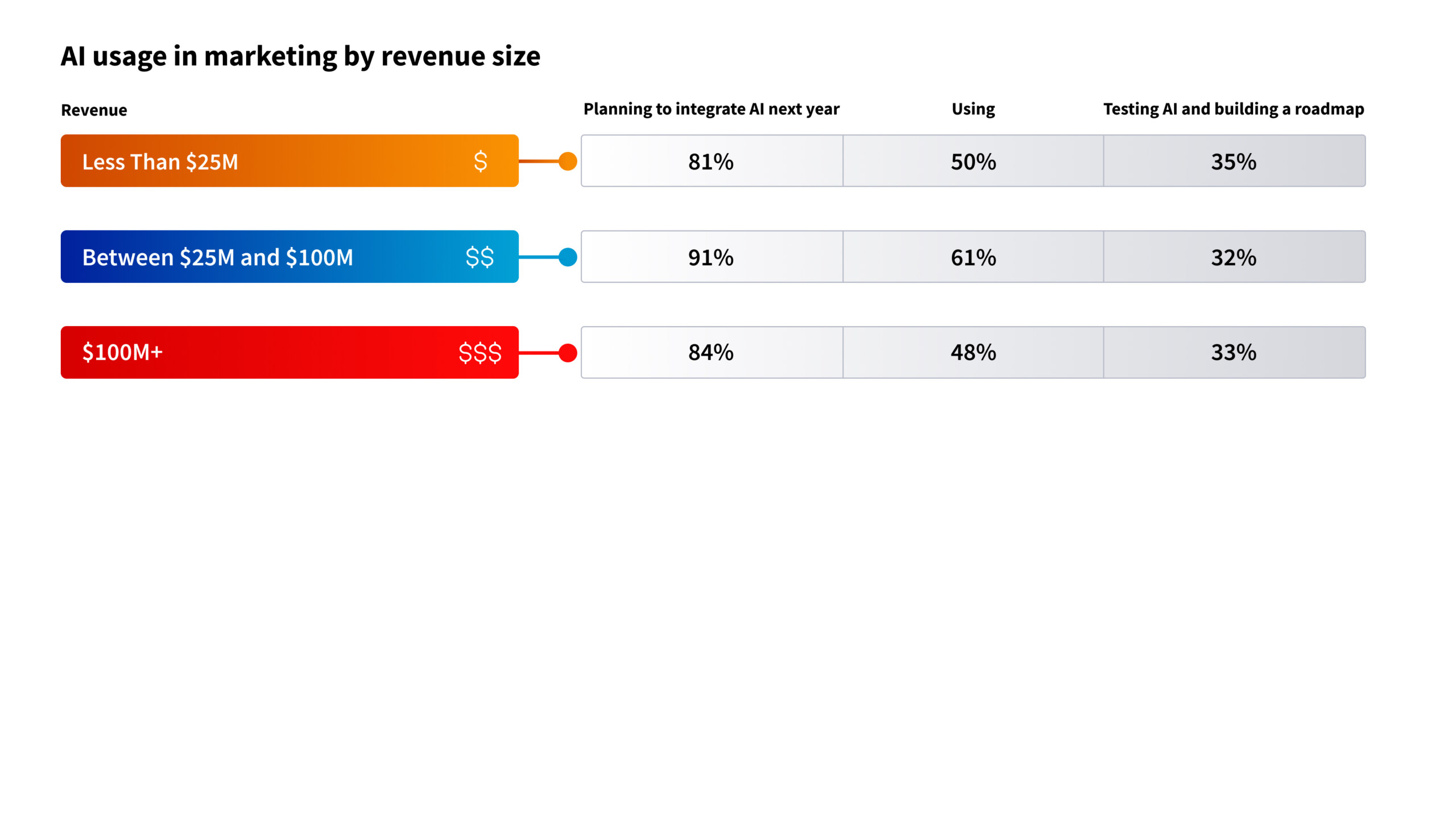
One of the most significant insights from our survey data is that businesses of all sizes are embracing AI in B2B sales and marketing. Those with revenue between $25M and $100M are currently leading the charge, with 61% already using AI and 91% planning integrations next year.
50% of businesses making less than $25M in revenue are using AI today, while 81% plan to do so next year. 84% of businesses making more than $100M in revenue plan to integrate it next year, with 48% already using it.
When we look at which businesses are working on testing AI and building roadmaps, the story is similar across the board. 35% of businesses with revenue of less than $25M are currently testing, 32% of businesses with $25M-$100M revenue, and 33% of those with revenue of $100M+.
What AI is used for in marketing today vs. will be used for next year
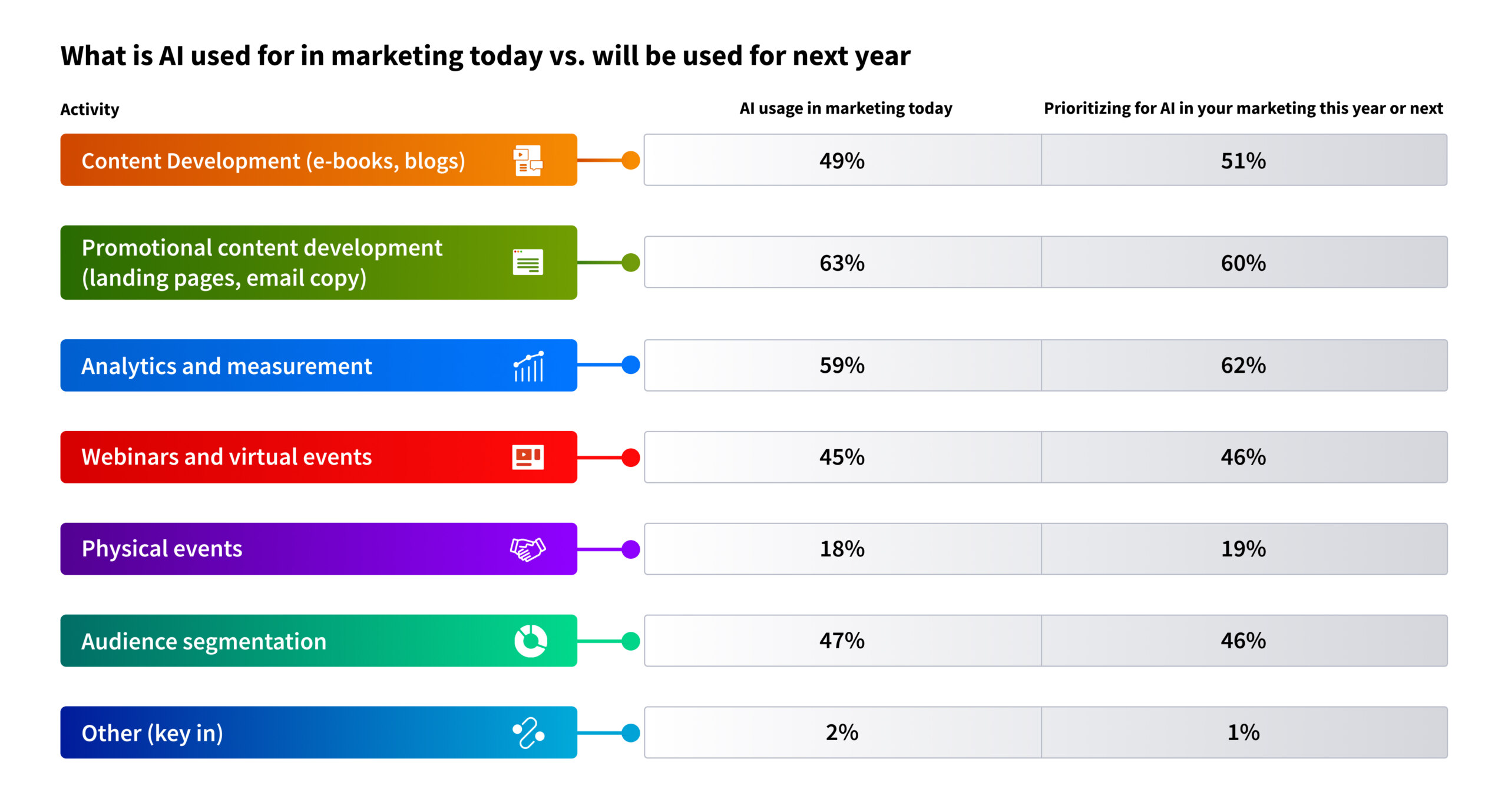
The ways that businesses use AI tools for B2B marketing are varied. AI drives efficiency in everything from data automation to content production and can be used to scale up marketing activity in many different areas.
With so many possible applications, we were interested to know where marketers are choosing to prioritize AI usage. We asked our survey respondents which marketing activities they are using AI for today and which ones they will focus on as we move into 2025.
The impact of GenAI is evident in the results. The most popular current use of AI is for promotional content development (63%), where AI can generate personalized text for materials such as landing pages and email copy. A further 49% of respondents use AI to develop e-books, blogs, and other informational content.
Another of AI’s most popular uses is for analytics and measurement (59%). AI tools can rapidly process and understand vast amounts of data to identify patterns and trends a human might struggle to spot. With valuable insights available on tap, it’s no surprise marketers are turning to AI for improved data analytics.
AI’s ability to interpret data and predict future patterns also means it plays an invaluable role in audience segmentation. 47% of respondents currently use it for this purpose and 46% plan to next year.
45% of B2B marketers in our survey use AI for webinars and virtual events. AI tools like the ON24 Intelligent Engagement Platform can help optimize audience engagement to nurture leads and drive revenue before, during and after virtual events. This trend is set to continue, with 46% prioritizing webinars and virtual events in their upcoming AI marketing strategies.
The other top activities that marketers will be prioritizing AI for either this year or next are analytics and measurement (62%), promotional content development (60%), and non-promotional content development (51%).
AI usage in everyday life
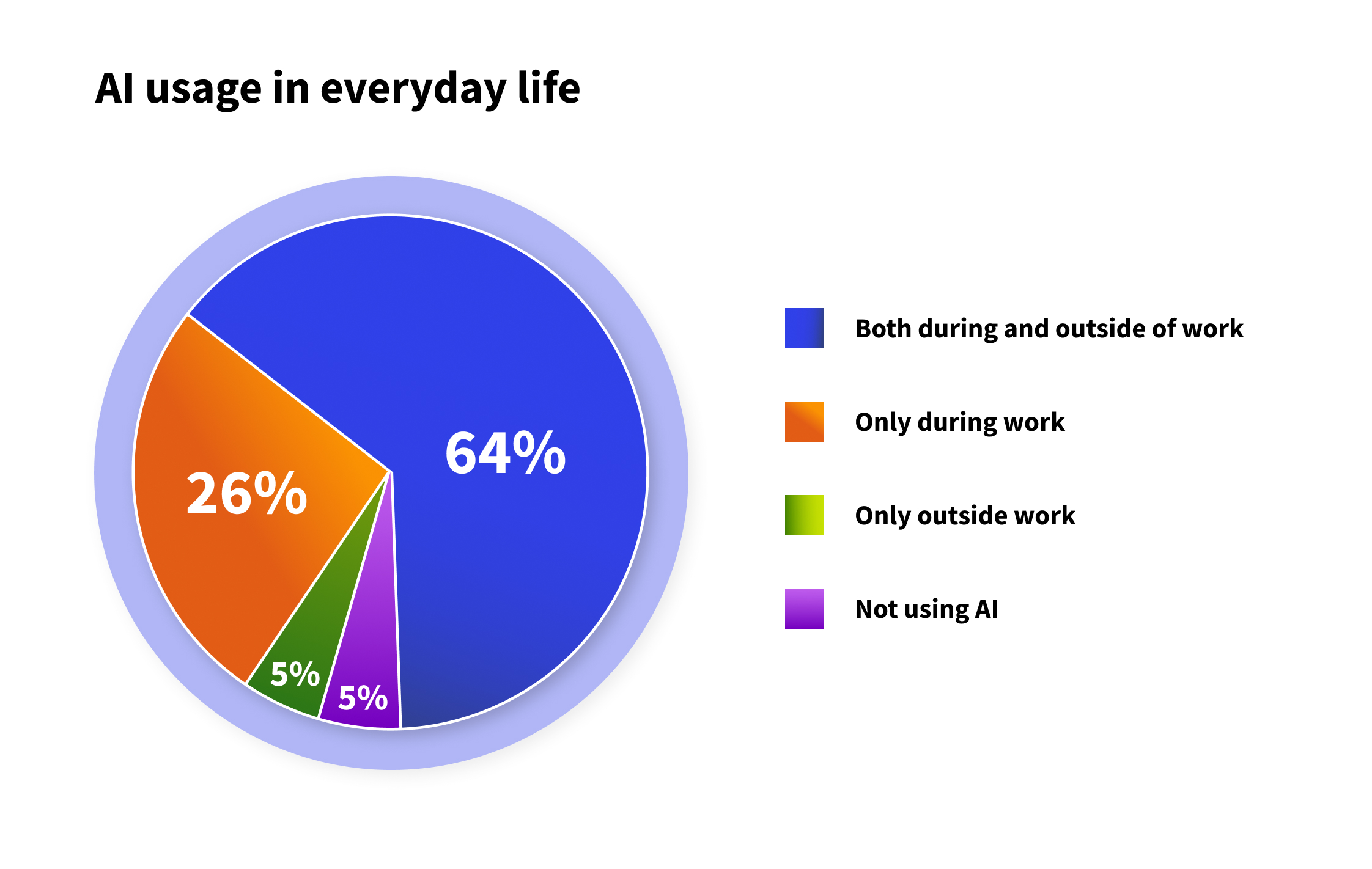
We wanted to find out how widespread AI usage is in everyday life, both inside and outside work. In our survey, we asked the marketers which areas of life they use AI in, which yielded some interesting results.
The main takeaway is that almost everyone is using AI in some way. 26% of respondents use it only during work, 5% use it only outside work, and 64% use it both during and outside of work. Only 5% said that they do not use it at all.
More than five times as many respondents use AI solely in their jobs than solely in their personal lives. This indicates that people are increasingly aware of AI’s benefits for streamlining workflows, enhancing productivity, and improving performance.
The top reasons to invest in AI now vs. in the future
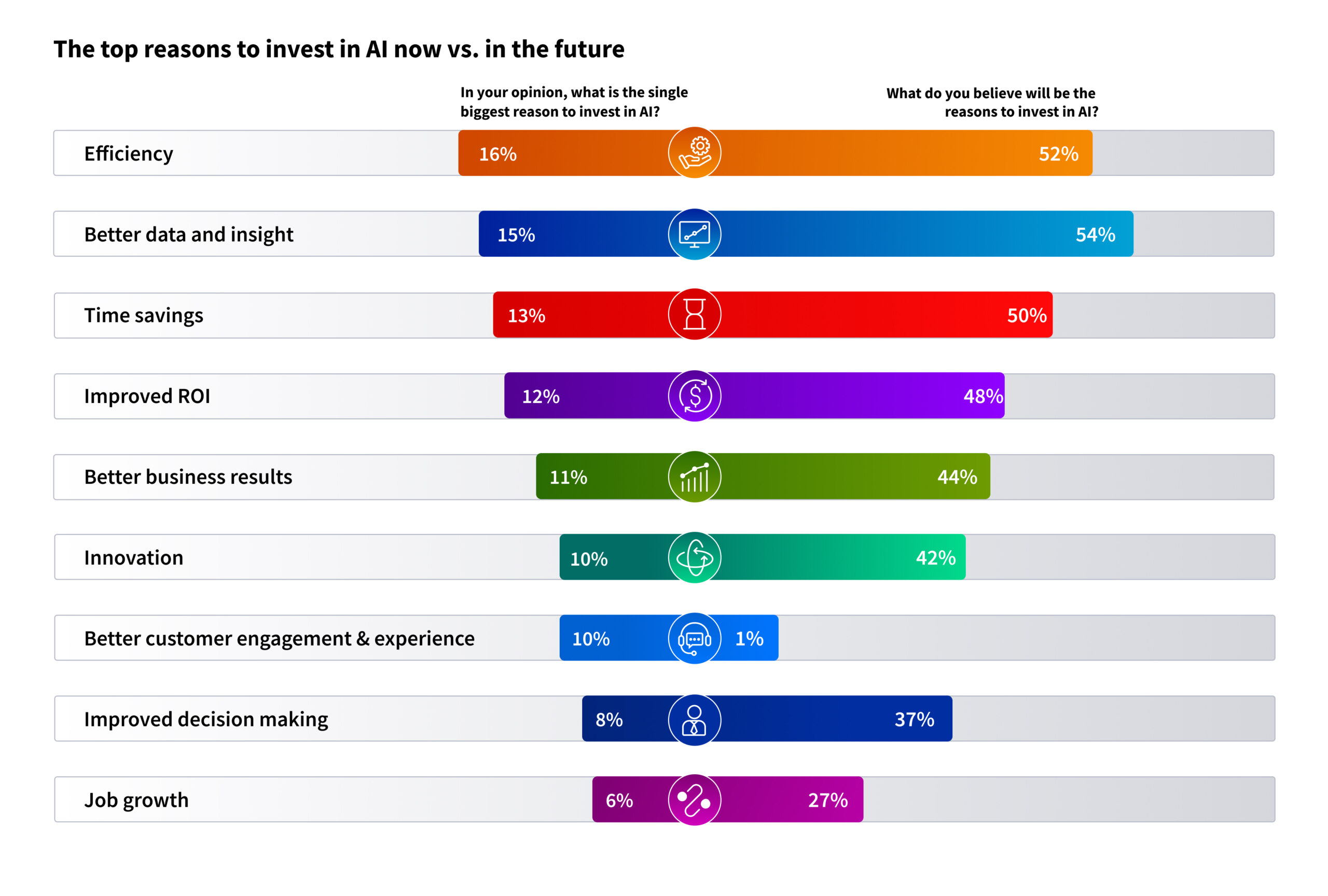
Marketers struggle with workload and efficiency, but that’s not the only reason to use AI. The technology’s versatility means it has many potential benefits to offer, so we asked our survey respondents what the biggest reason to invest is.
While efficiency was ranked as the biggest reason (16%), there wasn’t a huge statistical variance within the results. Better data and insight came a close second, with 15% choosing this as the top reason, while time savings and improved ROI received 13% and 12% of votes, respectively.
11% of people thought that better business results were the number one reason to invest in AI, while 10% chose better customer engagement and experience as the primary reason. The fact that respondents’ answers were so split just goes to show how broad the benefits of AI are for businesses.
We also asked respondents what they think the future reasons for investing in AI will be. More than half (54%) believe that better data and insight, efficiency (52%), and time savings (50%) will be the top reasons.
48% believe that improved ROI will be a reason to invest and 42% believe that innovation is up there too. With so many marketers expecting AI to benefit their work in the future, businesses that invest in it now can gain a competitive edge.
Do you think AI will improve your productivity?
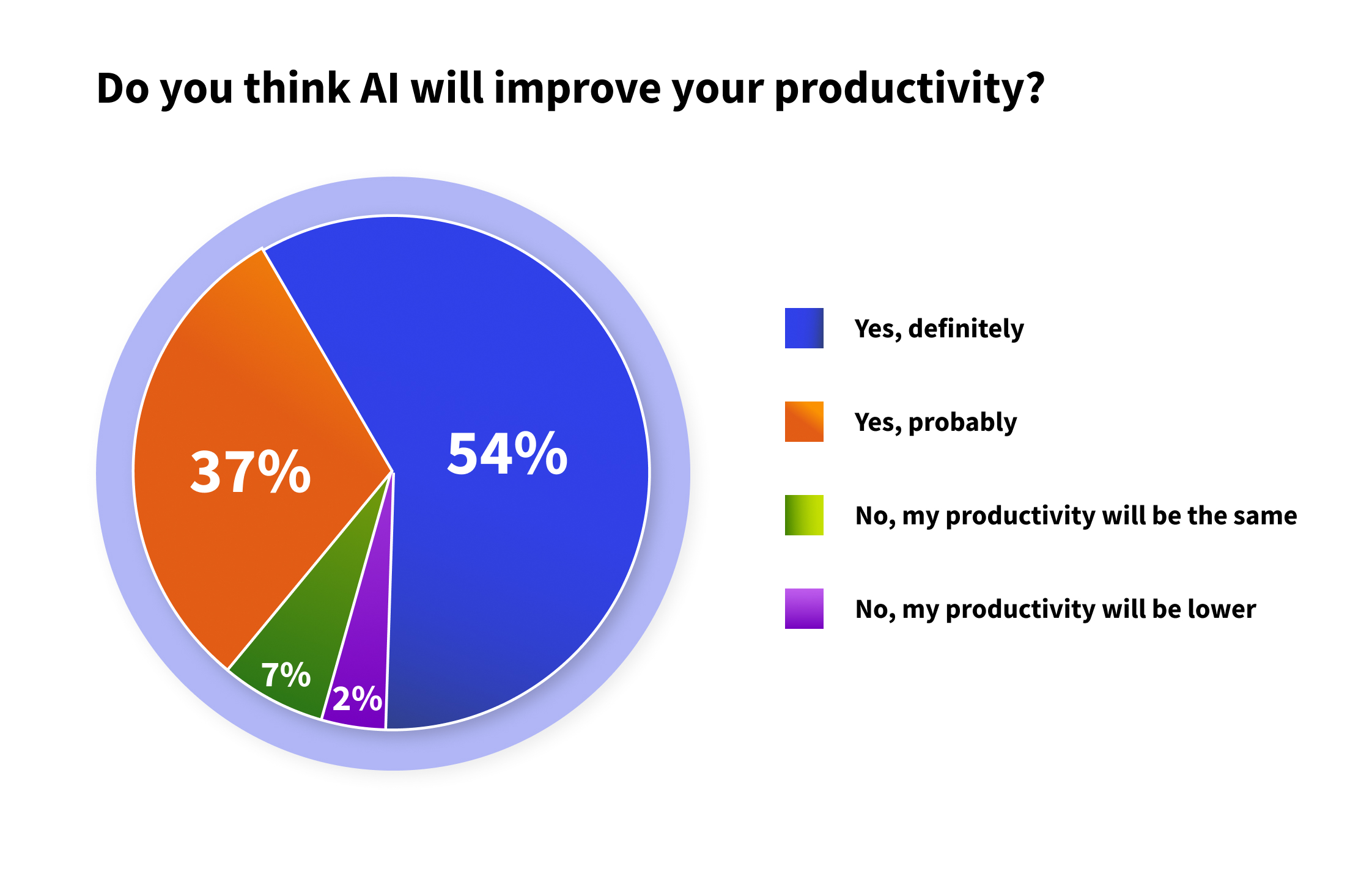
Finally, we looked at AI’s impact on productivity in B2B marketing. Most marketers believe that AI will likely improve their productivity, with 54% saying it definitely will and 37% saying it probably will.
Only 7% of B2B marketers expect their productivity to remain the same after integrating AI.
AI can significantly boost B2B marketing and sales productivity by automating routine tasks, analyzing data at speed, generating new content, and performing predictive analytics to help prioritize leads.
